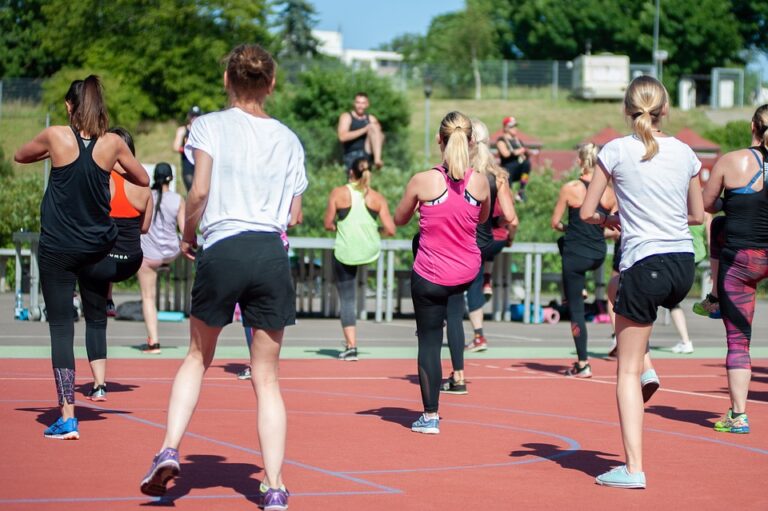Sports Psychology and Mental Resilience

In the high-stakes world of sports, physical prowess often takes center stage. However, beneath the surface lies an equally critical element that defines the success of athletes: mental resilience. Sports psychology delves into the mental and emotional aspects of athletic performance, helping athletes harness their psychological strengths to overcome challenges, maintain focus, and achieve their goals.
The Role of Sports Psychology
Sports psychology is a specialized field that examines the psychological factors influencing athletic performance. It focuses on how mental and emotional well-being impact an athlete’s ability to perform optimally. Sports psychologists work with athletes to develop mental skills that enhance performance, such as goal setting, visualization, and concentration techniques.
By understanding the mind-body connection, athletes can improve their focus, motivation, and overall performance.
Understanding Mental Resilience
Mental resilience, often referred to as mental toughness, is the ability to bounce back from setbacks, maintain composure under pressure, and remain focused on achieving long-term goals. It involves a combination of confidence, motivation, and stress management. Mental resilience is not an innate trait but rather a skill that can be developed and strengthened over time.
In the context of sports, mental resilience allows athletes to persevere through challenges and emerge stronger, both mentally and physically.
Building Mental Resilience in Athletes
Developing mental resilience requires a multifaceted approach that encompasses various psychological strategies. Here are some key techniques used by athletes to enhance their mental toughness:
1. Goal Setting and Motivation
Setting clear, achievable goals is a foundational aspect of building mental resilience. Goals provide athletes with direction and purpose, fueling their motivation. By breaking down larger objectives into manageable tasks, athletes can maintain focus and track their progress. Intrinsic motivation, driven by personal satisfaction and passion for the sport, is also crucial in sustaining long-term commitment.
2. Visualization and Imagery
Visualization is a powerful mental tool used by athletes to enhance performance. By vividly imagining successful outcomes and rehearsing specific skills, athletes can prepare their minds for competition. Visualization helps reduce anxiety, build confidence, and improve concentration. By mentally rehearsing scenarios, athletes can better anticipate challenges and develop effective strategies to overcome them.
3. Stress Management and Relaxation Techniques
Stress management is essential for maintaining mental resilience. Athletes often face high-pressure situations that can induce stress and anxiety. Techniques such as deep breathing, progressive muscle relaxation, and mindfulness meditation help athletes stay calm and focused. These practices reduce the physiological effects of stress, allowing athletes to perform at their best under pressure.
4. Positive Self-Talk and Confidence Building
Positive self-talk involves replacing negative thoughts with affirming statements. Athletes use positive self-talk to boost their confidence and maintain a positive mindset. By focusing on their strengths and past successes, athletes can counter self-doubt and build a resilient self-image. Confidence is a critical component of mental resilience, enabling athletes to take risks and persevere through challenges.
The Impact of Mental Resilience on Performance
Mental resilience significantly impacts athletic performance. Athletes with strong mental resilience are better equipped to handle adversity, maintain focus, and recover from setbacks. This psychological fortitude enables them to push beyond their limits and achieve peak performance. Mental resilience also plays a crucial role in injury recovery, helping athletes stay motivated and committed to their rehabilitation process.
Case Studies: Athletes Who Exemplify Mental Resilience
Throughout sports history, numerous athletes have demonstrated remarkable mental resilience. Michael Jordan, widely regarded as one of the greatest basketball players of all time, exemplified mental toughness through his relentless work ethic and ability to perform under pressure.
Similarly, tennis champion Serena Williams has showcased mental resilience by overcoming injuries and personal challenges to maintain her dominance in the sport.
Conclusion
Sports psychology and mental resilience are integral components of an athlete’s journey to success. By developing mental skills and resilience, athletes can enhance their performance, overcome challenges, and achieve their goals. The strategies discussed in this blog post offer valuable insights into the mindset of champions, inspiring athletes at all levels to cultivate their mental resilience.
As the field of sports psychology continues to evolve, the importance of mental resilience in achieving athletic excellence remains undeniable. Embracing the power of the mind, athletes can unlock their full potential and rise to new heights in their sporting endeavors.






